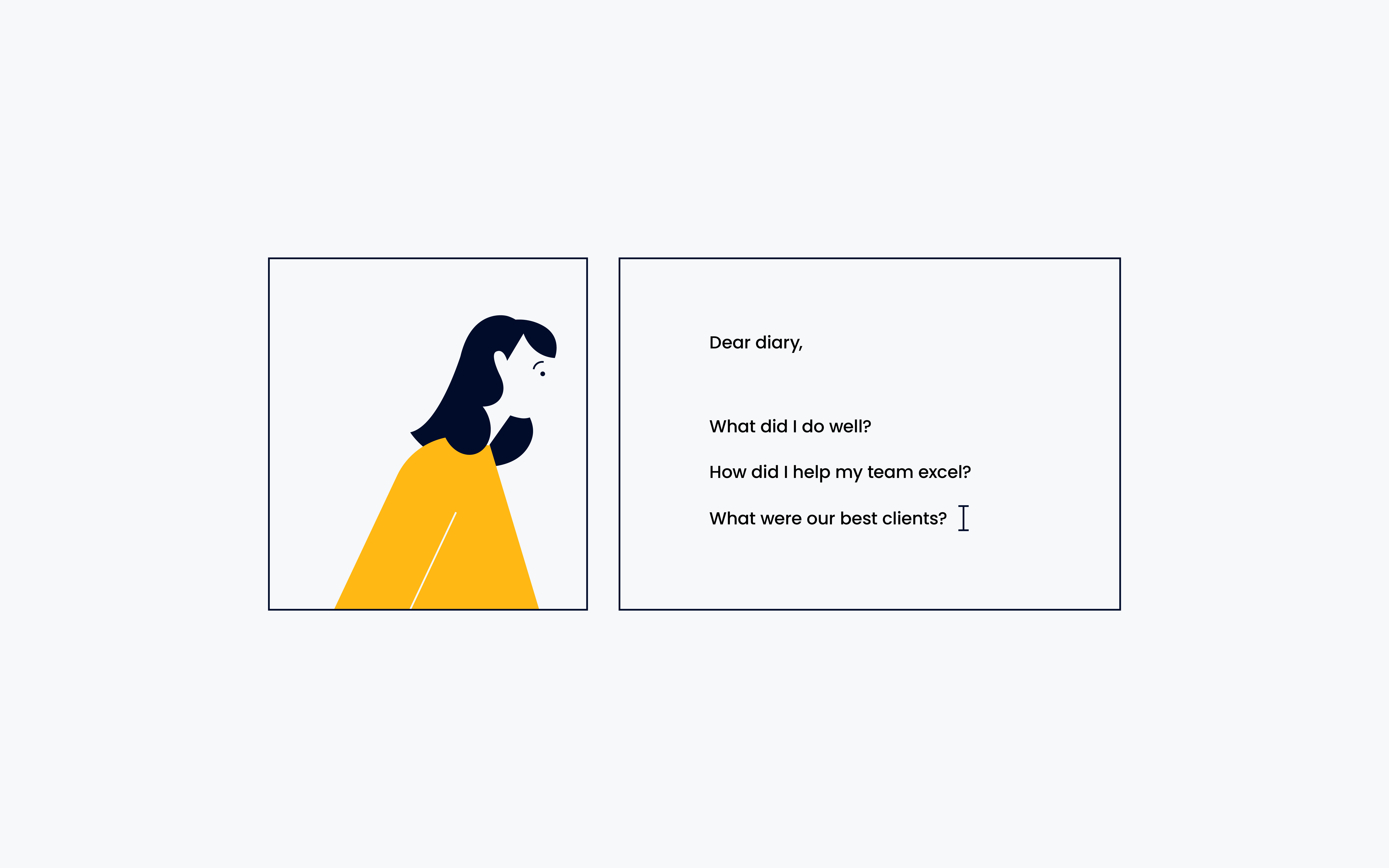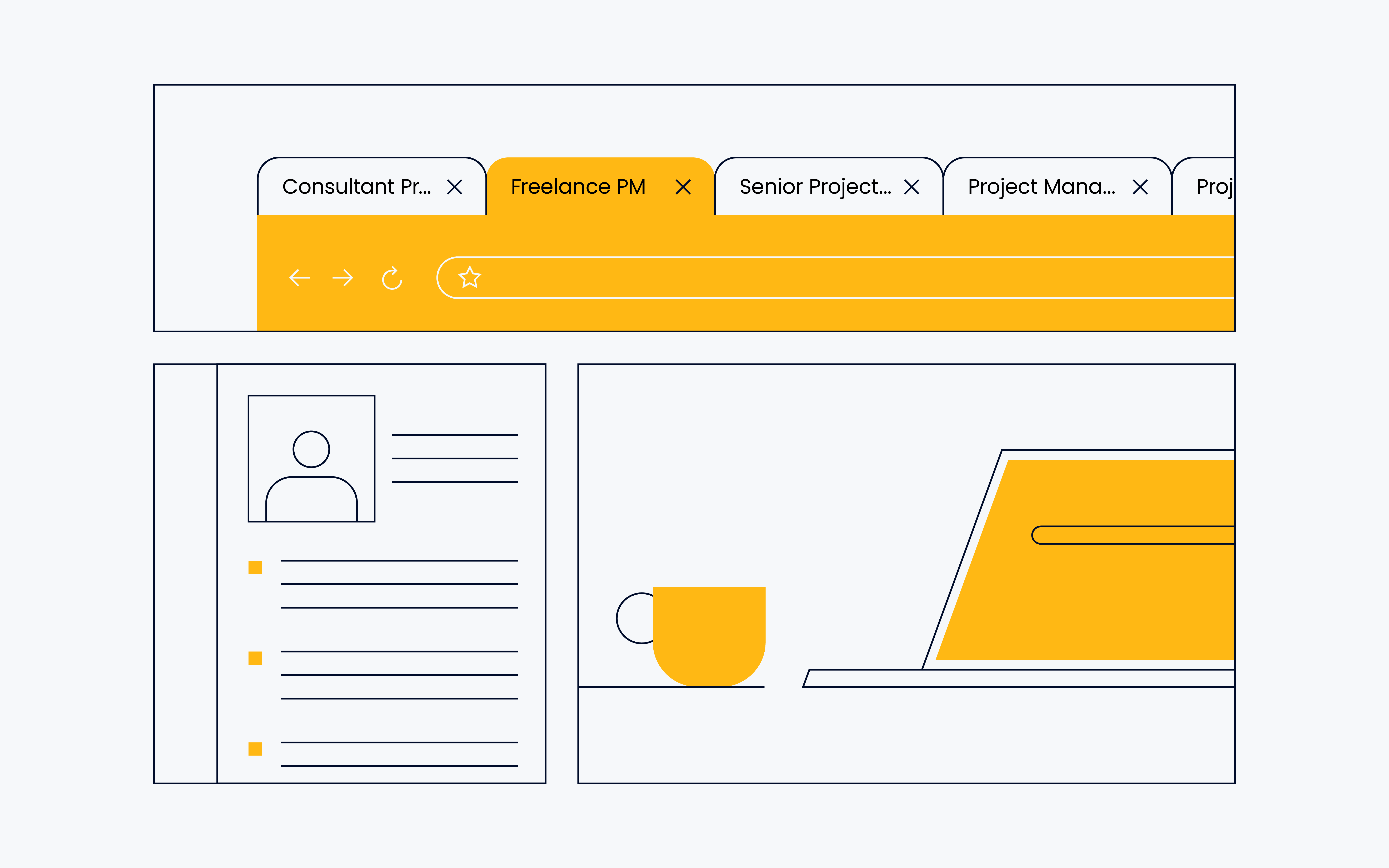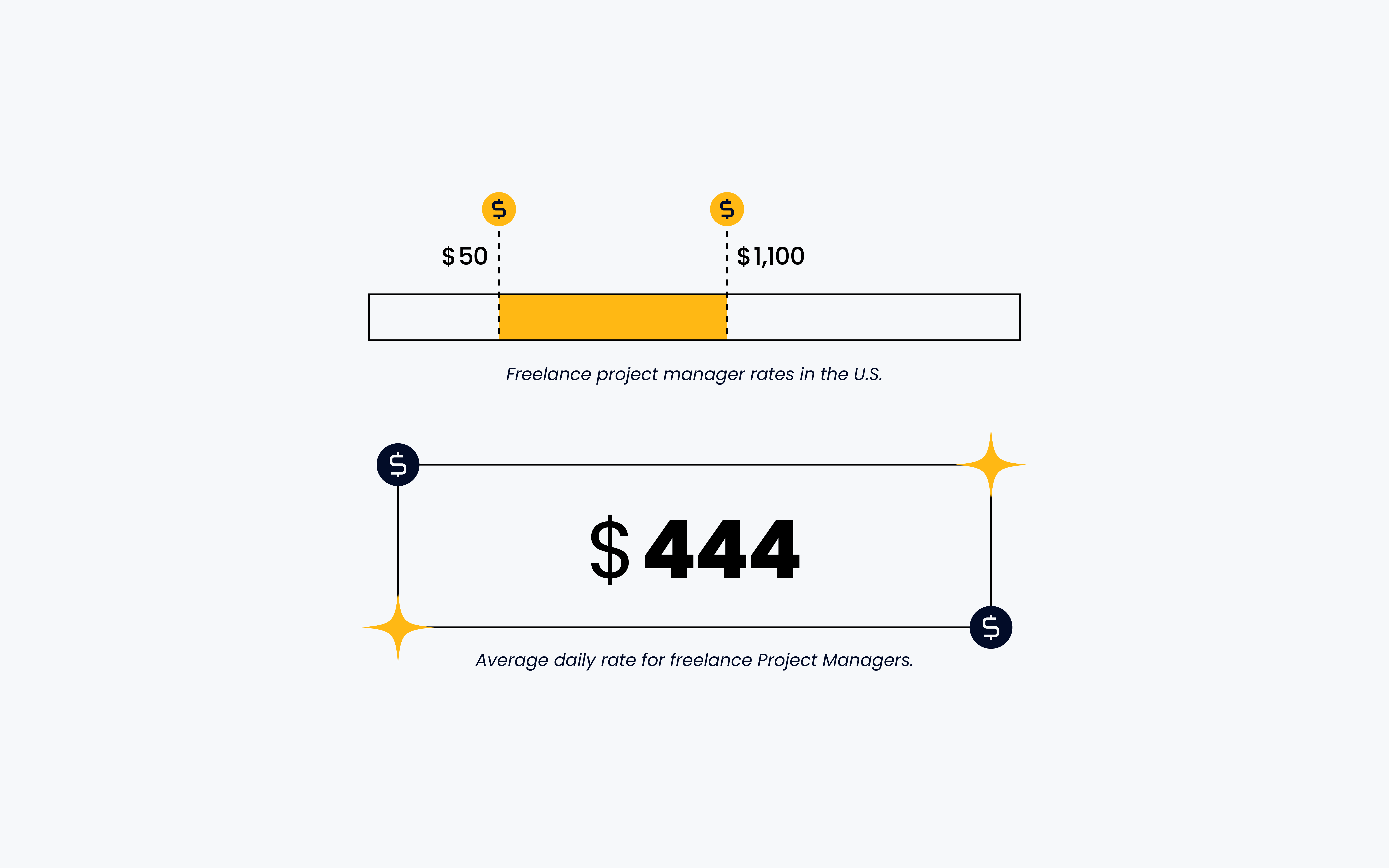If you're considering becoming a freelance project manager, finding the answers to your basic freelance start-up questions is difficult. How do you go about getting started, tracking expenses, and marketing yourself as a freelance digital project manager?
That’s where this freelance project manager guide comes in. Instead of wasting time scouring the internet for the puzzle pieces of vague, non-industry specific advice, keep reading so that you can get started the right way as a freelance digital project manager.
I’ll cover:
What Is Freelance Project Management?
Freelance project management is managing projects for clients of your choosing, on your own. In this scenario, you’re not working for an established company or agency—you’re working for yourself.

This may mean that you’re working part-time or outside of the traditional 9-5. You may also be managing multiple projects at once, for different clients, or else managing only select aspects of a project, like project initiation or creating project plans.
Why Become A Freelance Project Manager?
Becoming a freelance project manager offers several benefits.
1. More Flexible Working Hours
Freelance project management offers an opportunity to set your own schedule and hours. When you’re on staff, you’re expected to be available during core working hours. When you’re freelancing, it’s up to you to work with your clients to set expectations.
2. Increased Opportunity for Creative Freedom
When you’re on staff, you typically don’t have the opportunity to pass on projects or clients that are not ethically or creatively appealing to you. When you’re working for yourself, you choose who to work with, and the only creative constraint is your client’s signoff. Working for multiple clients at a time also increases the variety of assignments.
3. Ability To Set Your Rates And Earn More
As a freelance project manager, you can choose how much you make and give yourself a raise whenever you need to, or as you move up in experience or seniority. When you're on staff, you're beholden to your company's pay structure and their definitions of seniority.
How To Break Into Freelance Project Management
1. Figure Out Your Freelance Project Management Niche
Creating clear, concise descriptions and an understanding of what you offer will benefit every conversation you have with potential customers.
Reflect on past projects you’ve managed:
- What did you do well?
- In which areas did your team excel under your leadership?
- What are the best clients you’ve worked with as a project manager?

Consider the commonalities across these projects.
- Were there similar deliverables or challenges (ex. tight timelines, small budget, many stakeholders)?
- What types of projects have you worked on (ex. software development)?
- What about your market or industry expertise?
- What project management tools (ex. Asana, Trello, Jira) or project methodologies (ex. agile or Scrum) have you used?
- What project management experience do you have?
- Do you have your Project Management Professional (PMP), or some other project management certification?
Developing an understanding of your project management skills and personal project history will help inform the specific niche(s) you're qualified to operate in as a freelancer.
2. Create A Job Description For Yourself
Many people don’t understand how an experienced project manager—let alone a freelance project manager—might benefit their project or organization. It can be hard to answer the question of “what can you do for me” on the spot.
It's helpful to create a job description for yourself to summarize the types of services you can provide. Update and maintain your job description with a list of your skills, experiences, case studies, and examples of situations you’ve worked through.
Looking For Templates?
If you’re looking for ideas to get started, we’ve prepared a digital project manager job description template for you (you’ll need to be a member to access these templates!).
3. Collect Testimonials & Recommendations
If you can, collect testimonials or recommendations from clients that you've previously worked with. As you take on your first clients and projects as a freelancer, make sure to ask each one for a testimonial, even if they're small potatoes.
Make this part of your regular project closure process as well, so you can always have new quotes and testimonials coming in. This will also come in handy in the next step, creating a portfolio.
4. Build A Portfolio
Create a project manager portfolio to showcase projects you've worked on in the past. This will allow clients to see your work, expertise, and results. Where you can, include testimonials from previous clients, as well as details about the project context, what you contributed, and any challenges you came across.
If you're not able to reveal specific project details, outcomes, or data, try using qualitative data or business metrics that are universally understood (such as revenue, productivity rates, etc.)
5. Cultivate Relationships To Expand Your Potential Client Base
The ability to network is an essential component of a successful freelance project manager. It’s the primary way to find freelance project manager jobs.
It’s helpful to start from a place of existing relationships: contact friends, former colleagues, and any business owners you know to tell them you’re embarking on a solo gig and would love any references or advice they can send your way.
Start determining how you might advertise to the potential markets you identified in the first step. Don’t be afraid to ask someone you know for an introduction to a company you’d like to work with, but don’t be pushy about it.
6. Search For Freelance Project Management Gigs

When all else fails, good ol’ job searching doesn’t hurt. Scour job boards like LinkedIn for job postings, search local ads on your chamber of commerce’s website, seek out freelance-specific gig sites, and even check Craigslist now and again.
Search for positions where not many other freelance project managers might be looking, and you could end up finding your next opportunity.
How Much Money Do Freelance Project Managers Make?
According to a survey that we issued in 2023, freelance project manager rates in the U.S. range from $51-$2,000 a day, depending on skill set and years of experience. The average daily rate is $451 per day.
Check out our salary guide for more information on UK and Canadian rates.

What Qualifications & Skills Do Freelance Project Managers Need?
Becoming a freelance project management professional requires a blend of good old fashioned project management skills, plus the ability to successfully run your own business. Necessary skills include:
Coordination, orchestration, and communication skills
Clients want a project manager that is capable of aligning and holding disparate stakeholder groups accountable to achieve a common goal.
Budget and time management
Project managers must ensure that clients receive desired deliverables on time and within budget.
Process improvement
Project managers should be capable of designing, simplifying, and potentially automating workflows to improve how teams do business (and optimize how they run their own business!)
Considerations Before Going Freelance
It’s important to make sure your finances are in order and you understand the legal considerations involved before embarking on a freelance assignment.
1. Save Up: Create a Reasonable Safety Net & Emergency Fund
Prepare an Excel spreadsheet and add up any recurring home/utility/service bills, loan payments, grocery costs, retirement fund contributions, incidentals, and any other “regular” expenses. Set aside enough money to cover these expenses for at least 3-6 months.
2. Understand the Additional Costs of Freelancing
Consider health and other insurance costs, research software purchases and mobile apps you’ll need, home office expenses, and any additional costs you may incur weekly, monthly, or yearly as you start working on your own.
3. Get Advice on Tracking Expenses, Costs, and Income
Find and meet with an experienced accountant or tax professional to obtain the most up-to-date understanding of what you need to track so that you’re always on point with your tax game as a future business owner.
An initial conversation can also potentially jumpstart a longer-term relationship with someone who can help you with your business’s financial decisions as your freelancing career grows.
4. Begin Preparing Legal Documentation
As you enter into client relationships, you’ll likely need to start preparing legally binding contracts and other documentation. To get started, ask other freelancers or online consultants or carefully review and vet free legal documents online.
Get familiar with typical terms in independent contractor documents and learn what you need to look out for as you’re signing onto others. Additionally, figure out if you’ll be filing for a business entity or license within your state/country—plan carefully, because this will affect how you deal with your taxes and finances.
5. Prepare Your Home Office Space

This part is fun! Do you have space identified for a home office? What kind of equipment do you need? Where do you do your best work? If your city has co-working spaces, these make a great supplement or alternative to working from home (but add another recurring cost to your expense spreadsheet!)
How To Juggle Clients And Maintain Work-Life Balance
1. Set Boundaries Around Your Work and Your Clients
You are in the unique position of protecting your time, your skills, and limiting anything you won’t or can’t commit to. This means saying no to projects that won’t appropriately consume your time and skills.
2. Be Clear About Your Intentions and Set Expectations
Communicate your intentions and set expectations as to your role on a project, your team’s role, what you expect from the team, and any client interactions. Make sure you’re constantly communicating project status and impacts.
You’ll also want to update your clients on your schedule and availability, project roles, goals, and expectations for project team members and stakeholders.
3. Plan for Vacations, Life Changes, and (Unexpected) Time Off
Document, document, document. Leave a trail for your project team, stakeholders, and client contacts. Use the “hit by a bus” principle: if anything were to happen to your availability, it should be clear where you’ve left off and how someone else can pick up your work.
Transparency is critical to preserving your reputation. You’ll thank yourself at crunch time before a vacation, or when sudden travel comes up: most of your prep work will already be done and documented, making it easy to arrange and communicate time off.
4. Apply Project Management Principles to Your Freelance Life
Be realistic in your expectations for what you can get done within certain constraints. Calculate the value of your time, the cost of what you’re doing for each client, and see if these numbers translate to profitability. If you take on more than you can handle, you won’t provide quality work—damaging your reputation.
Limit “scope creep” in your own contracts by setting boundaries for yourself and your clients and knowing when to ask for a new contract or additional clarification about your role.
Leveling Up As A Freelance Project Manager
1. Seek New or Additional Freelance Project Management Work
Reconsider your job description and skills/project list.
- Can you add anything new?
- Are there any additional types of projects you’d like to try?
- Can you expand your potential market for clients and projects?
See if you need to revamp any of your client marketing approaches or focuses. If you’re a senior project manager, perhaps it’s time to try independent consulting, running a workshop, or speaking at conferences.
2. Raise Your Rates
Let’s be real: most of the time we raise our rates after realizing we’ve been vastly undercharging. Fortunately, it is reasonable to increase your rates by a small percentage either annually or semi-annually, as long as you’re expanding your knowledge and skills.
Give your clients at least a few months’ notice of an impending rate change. If you’re unable to raise your rates on existing contracts, approach each new client contract with a plan to charge slightly more than last time so you can get yourself where you need to be.
3. Market Yourself in New Ways
Evaluate what you’ve been doing to gain new clients. What has or hasn’t worked for you? Perhaps starting a blog or podcast might appeal to your potential client audience. Or, maybe getting more involved in the local community would be beneficial to your business.
Marketing yourself is one of the best ways to increase demand and thus how much you can charge for your services.
4. Continue Your Professional Development as a Project Manager
Even though freelancers lack access to the corporate financial or educational backing of full-time employees, they still have lots of options for continuing education. Take advantage of project management conferences and meetups.
Disadvantages of Becoming A Freelance Project Manager
While freelance project management offers increased flexibility, it also presents challenges. These challenges may include:
1. Lack of stable income
Unlike in a full-time gig where you get paid regardless of whether business is fast or slow, ebbs and flows in freelance work translate to peaks and valleys in your income. You’ll need to plan accordingly.
2. Potential for longer working hours
Freelance project managers must spend time completing existing client work, while also seeking out new business. While you may be able to set your own working hours, setting boundaries is critical to avoid burnout.
3. Potentially high costs of doing business

In the USA, contract work often does not offer healthcare or other benefits, so you’ll have to purchase benefits separately if you don’t have the option of being a dependent on someone else’s policy. Doing so can be costly, so you’ll need to budget accordingly for these expenses.
Find out more about project management job benefits here.
Project Management Software For Freelance Project Managers
Freelance project managers can benefit from project management software to make it easier to manage your project portfolio, if you choose something with the right functionalities. For example, you can use project management software to:
- Manage project timelines, including task management and execution
- Track hours and expenses
- Monitor and mitigate risks.
Learn more about the best remote project management tools or freelance project management software to meet your needs.
What Do You Think?
Make sure to check out our series of Live Mentorship sessions with Patrice Embry, where she deep dives into all things freelancing (you'll need to be a DPM member to access these and to join the conversation in Slack):

